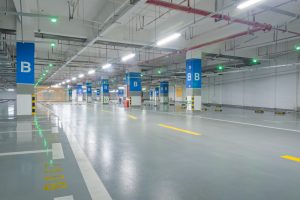Over 1,000 Dead as Heat Wave Sets Karachi, Pakistan Ablaze

 Over the course of the last full week in June, a brutal, scorching heat wave claimed more than 1,000 lives in Karachi, Pakistan’s largest and most populated city.
Over the course of the last full week in June, a brutal, scorching heat wave claimed more than 1,000 lives in Karachi, Pakistan’s largest and most populated city.
Hospitals are now overflowing with patients suffering from dehydration, gastroenteritis, and other heat-related health issues. Morgues are packed with unidentified dead bodies, who were found collapsed in the streets and are now headed for mass graves.
According to climatologist Qamaruz Zaman Chaudhry, the blistering heat causing all this is an effect of the urban heat island phenomenon.
The U.S. Environmental Protection Agency reports that heat islands are built up areas that are hotter than nearby rural areas. As trees and grass are replaced with concrete and asphalt, more solar energy is absorbed rather than reflected, increasing the area’s temperature. When exposed to direct sunlight, asphalt can reach surface temperatures as high as 172 degrees Fahrenheit. Consequently, the heat island effect can increase the temperature of a city with 1 million people or more by 1.8 to 5.4 degrees Fahrenheit (one to three degrees Celsius) during the day, and at night, it can increase the temperature by as much as 22 degrees Fahrenheit (12 degrees Celsius).
In other words, when Karachi’s 113 degree Fahrenheit weather feels like it’s 122 degrees, it’s because the hot air is trapped and can’t escape. As Chaudhry explains, “The city is like a furnace that captures the heat without letting it escape.”
Fortunately, Karachi’s Meteorological department has forecast a chance of rain in the coming days, which should hopefully relieve some of the ravages of the heat island effect.
Until that time, though, bodies will continue to pile up, many of which will likely again go unidentified. Raza Kazim, a spokesperson with the Edhi Foundation which runs Karachi’s main morgue, said they were still receiving dead bodies, and on June 28, had buried around 160 unclaimed bodies.






